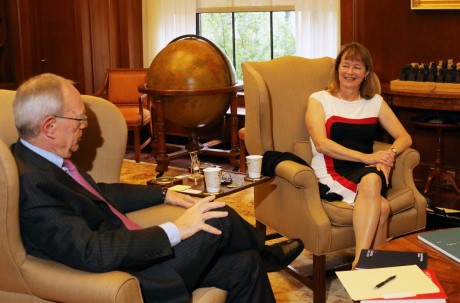London’s Imperial College and Cambridge, Massachusetts’ MIT have set up a joint seed fund to help fund speculative research and encourage collaboration between the two science and engineering research powerhouses. Kicked off with a $300,000 (£195,000) input from each institution, the fund is expected to go towards small-scale experiments and prototypes, as well as meeting travel expenses: costs which are often not supported at the early stage of research but which can have a large effect on the eventual outcome, according to a joint statement.

The two universities have a history of collaboration, including a Global Fellows Programme and an undergraduate exchange scheme. “A common obstacle to innovation is the need for seed funding of exploratory research work. Sometimes very modest sums can make all the difference in helping ambitious and even risky ideas to take-off. Many academics at both universities could benefit from new partnerships,” said Prof Maggie Dallman, Imperial’s associate provost for academic collaboration. “This seed fund will enable more to do so.”
If the seed fund is successful, both institutions expect to increase their contribution to the fund. “The world turns to MIT and Imperial to solve a broad range of societal problems. Amid the immediacy of these increasing external expectations, both universities need to find ways to support fundamental research where the results are less immediate and the impacts promising but less certain. This programme is an important and creative way to ensure that truly novel ideas can be pursued,” commented Imperial’s president, Prof Alice Gast. “It is critical that we continue to find ways to support research interests whose payoff might be significant, but only over time,” added her counterpart, Prof L Raphael Reif.




Red Bull makes hydrogen fuel cell play with AVL
Formula 1 is an anachronistic anomaly where its only cutting edge is in engine development. The rules prohibit any real innovation and there would be...